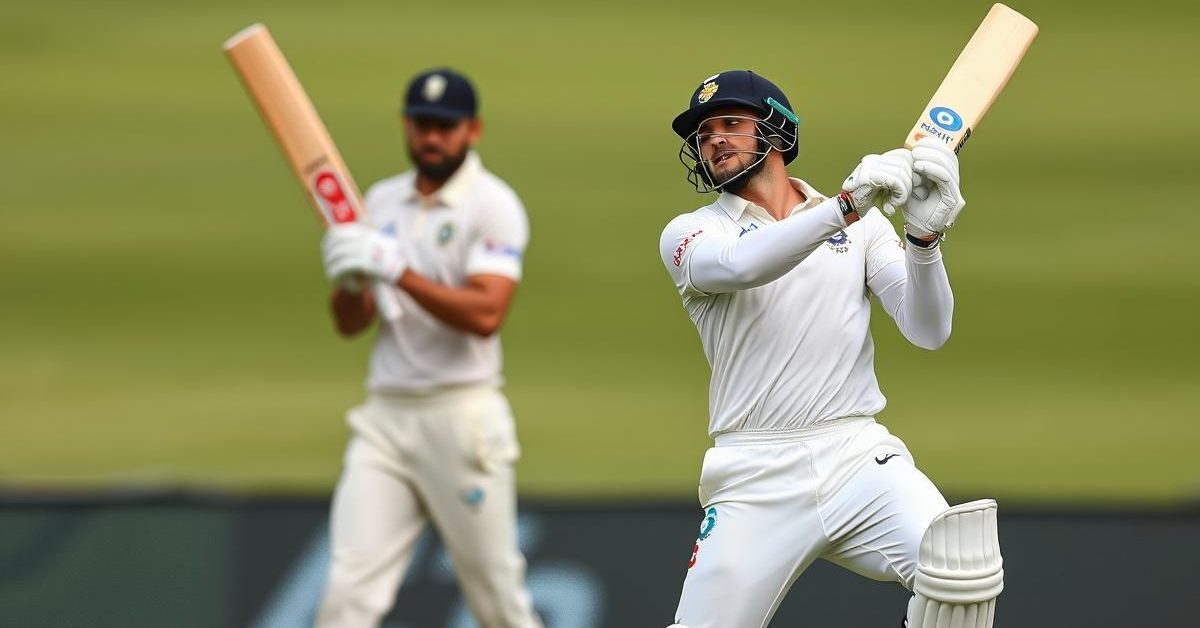The Unforgettable Drop That Launched a Legend: Allan Lamb on Sachin Tendulkar
A moment of cricketing history, etched not just in record books but in the memory of former England international Allan Lamb, recounts the fateful day a dropped catch paved the way for Sachin Tendulkar’s first Test century on English soil. It was 1990 at the iconic Old Trafford ground, and a young, prodigious Tendulkar was just beginning to stamp his authority on the international stage.
Lamb, with a chuckle that surely echoes years of good-natured banter, recalls the exact incident. “I dropped him at slip, and he went on to score 100 in that Test match,” he shared, adding his now-famous quip, “So, I always tell him, it was me who made your name!” This self-deprecating humor from the seasoned England cricketer highlights the pivotal nature of that missed opportunity, a single error that inadvertently became a stepping stone for the ‘Little Master’.
A Glimpse into Greatness: Tendulkar vs. Kohli, A Masterclass Debate
The conversation naturally pivoted to the perpetual debate comparing cricketing titans across generations. Allan Lamb didn’t shy away from weighing in on the contemporary maestro, Virat Kohli. He acknowledged Kohli’s brilliance without hesitation, praising his comprehensive shot-making and remarkable ability to score at a rapid pace across formats.
However, when pressed to pick the best he’d ever played against from India, Lamb’s answer remained resolute: Sachin Tendulkar. “Even ahead of Sunny (Sunil Gavaskar),” he emphasized, a testament to Tendulkar’s unique impact. Lamb did, however, add an intriguing caveat: he wished he could have witnessed Tendulkar face the formidable West Indies pace quartet of the 1970s and 80s, a challenge Gavaskar famously excelled at, showcasing his immense resilience against the likes of Malcolm Marshall and Joel Garner. It’s a hypothetical that continues to fuel pub debates among cricket aficionados worldwide.
Navigating the New Era: Leadership and Reliance in Indian Cricket
Shifting focus to the current landscape of Indian cricket, particularly with the team’s ongoing Test series against England, Lamb offered his insights. While expressing confidence in India’s prowess in one-day international cricket – “India should win every competition,” he asserted – his thoughts on the Test arena carried a note of caution.
He highlighted the immense responsibility resting on the shoulders of pace spearhead Jasprit Bumrah, especially in the absence of key players. Lamb also underscored the significant void left by the absence of star batter Virat Kohli from the Test squad, a player whose consistency and leadership are often irreplaceable in the longest format of the game. The sheer impact of these stalwarts underscores the challenges and opportunities facing emerging talents like Shubman Gill, who has increasingly taken on leadership roles, particularly in limited-overs formats.
The Bumrah Conundrum: A Strategic Reveal or a Misstep?
The discussion delved deeper into the tactical decisions surrounding player management, particularly concerning Jasprit Bumrah’s availability for the crucial Test series. It was publicly announced that Bumrah would feature in only three of the five Test matches, citing injury management and workload concerns.
This transparency, however, drew criticism from former India opener Aakash Chopra. Speaking on his popular YouTube channel, Chopra questioned the wisdom of such a public declaration. “Why was it not kept a secret? We don’t announce our team as well,” he mused, emphasizing the strategic disadvantage of revealing player availability to the opposition. Chopra argued that keeping the opponent guessing about crucial player participation could be a vital psychological advantage, suggesting that some information is best kept under wraps, allowing the team to play its cards closer to its chest.









